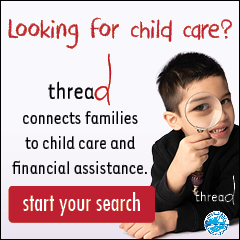
Be Well Postpartum:
7 Tips for a healthy Recovery
By Christa Melnyk Hines
Throughout your pregnancy, you eat the right foods, drink plenty of fluids, rest and try to keep stress to a minimum. You might think once your baby arrives that you can relax your self-care regimen, but caring for yourself should remain a top priority to ensure the health of both of you.
Drink plenty of water. “The key to optimal recovery after delivery is fluid hydration with water,” says obstetrician Dr. Gina Petelin. “This is important for replenishing your body after significant fluid losses.”
Nourish yourself. Before the baby arrives, assemble healthy meals ahead of time to stash in your freezer. In the midst of caring for a newborn, you’ll be less likely to eat poorly when you can quickly pop a nutritious, ready-made meal into the oven or crockpot.
Also, stock up on protein-packed snacks to keep your energy up especially if you plan to breastfeed. Choose simple, healthy snacks like cheese sticks, almonds, rotisserie chicken, yogurt and energy bars.
Consult with your physician to determine how many extra calories you should be consuming each day according to your activity level, weight and if you choose to nurse.
Sleep when the baby sleeps. “Those first days home from the hospital, rest, rest, rest and spend as much time skin-to-skin with your baby as you can,” says Teresa Marshall, a birth and postpartum doula. “This will truly make for a smoother transition for baby from womb to room and for mama, as well.”
Tricia Walania, a postpartum emotional support program coordinator, says that rest is one of the best ways you can care for yourself. “Being rested helps you cope more effectively with both physical and emotional changes,” she says.
Unable to catnap? Relax with your eyes closed.
Integrate gentle exercise. Many moms are surprised that they still look pregnant after delivery. Don’t panic; that’s normal, Dr. Petelin says. Although the uterus decreases in size right away, you will still appear to be about five months pregnant when leaving the hospital. By following a healthy diet and exercising according to your doctor’s instructions, you’ll get back to your pre-pregnancy body.
Many moms enjoy group exercise activities like “mommy and me” yoga and Fit4Mom (formerly Stroller Strides) where you’ll also experience companionship with other moms. Walking is also beneficial. Not only will you get exercise, a stroll around the block on a sunny day will do wonders for your emotional well-being and give you a boost of vitamin D.
Take extra care if you’ve had a cesarean delivery and only gradually increase your activity level according to your doctor’s instructions. Current recommendations include no driving the first two weeks postpartum and no heavy lifting (anything over 15 pounds) for the first six weeks.
Expect hormonal changes. Many new moms feel overwhelmed, tired, anxious, tearful or mildly depressed. “Exhaustion, hormonal changes and isolation after the birth of a baby may lead to what is referred to as ‘baby blues,’ “ Walania says. “To some degree this happens to everyone. It’s natural and not permanent.”
Talk to your doctor if symptoms persist for more than two weeks. Anxiety and depression can also be linked to thyroid issues, low levels of iron and vitamin D.
Tap your village. “I would recommend reaching out. Don’t be afraid to ask for help or just a visit,” Marshall says.
Often friends and family members are eager to assist by holding the baby or watching siblings to give you a chance to nap, shower, go for a walk or run an errand.
“You have to take care of yourself in order to be able to take care of your baby,” Walania says.
While social media can help you feel connected to the outside world, nothing can quite replace a deeply satisfying conversation with a friend or a warm hug. Get together for coffee, lunch or a walk. If your network feels inadequate, look for a moms group or parent-child gatherings through the local hospitals, faith-based organizations or other community groups. For ideas, check out MOPS.com (“Mothers of Preschoolers,” but includes kids from birth through kindergarten) to find where groups are meeting near you; or go to Meetup.com, click on the “parents & family” filter, then search by your city or zip code for playgroups in your area.
The sooner you seek support, the faster you can start feeling like yourself again.
“We don’t want anyone to miss out on the first months of their baby’s life because they don’t feel like themselves and aren’t able to enjoy it like they had hoped,” Walania says.
Nurture your spirit. You may be a mom now, but you aren’t only a mom. Take time to do the things that have always brought you personal fulfillment and joy, whether that’s crafting, relaxing in a warm bath, browsing at a boutique or lunching with a friend. When you are happier and healthier, your baby will be too.









